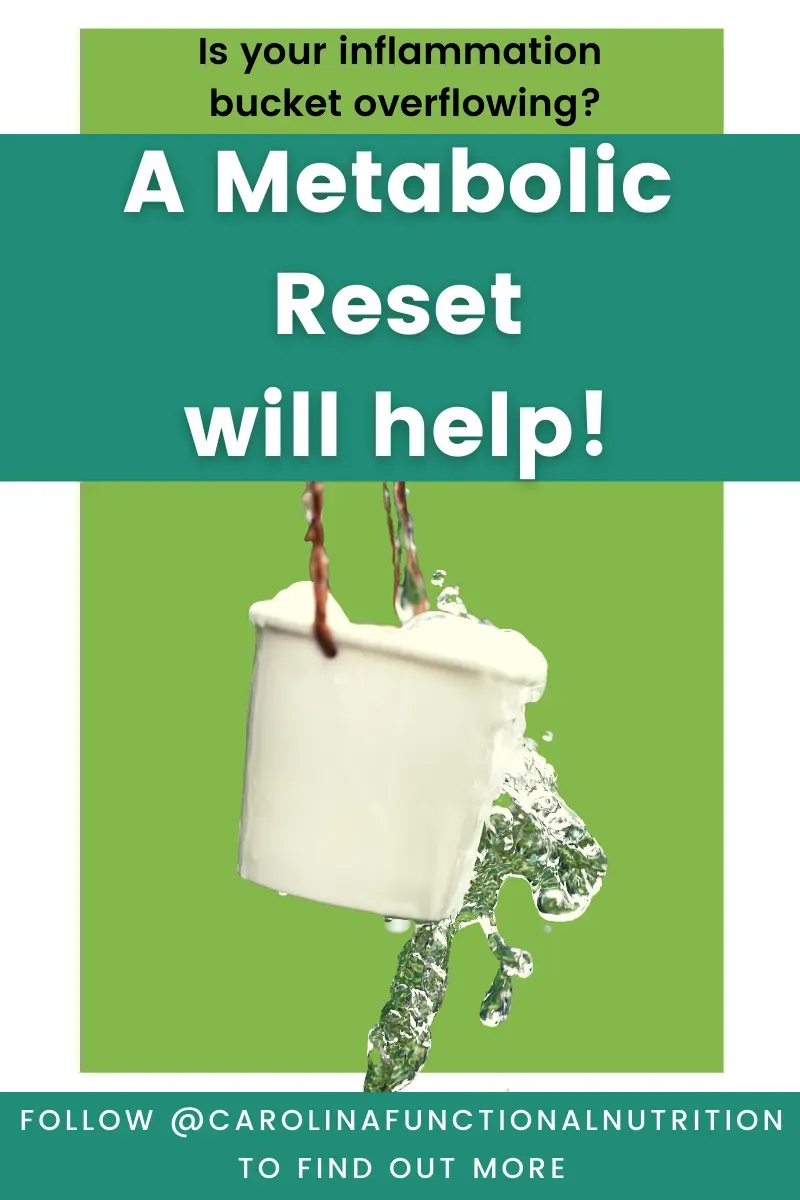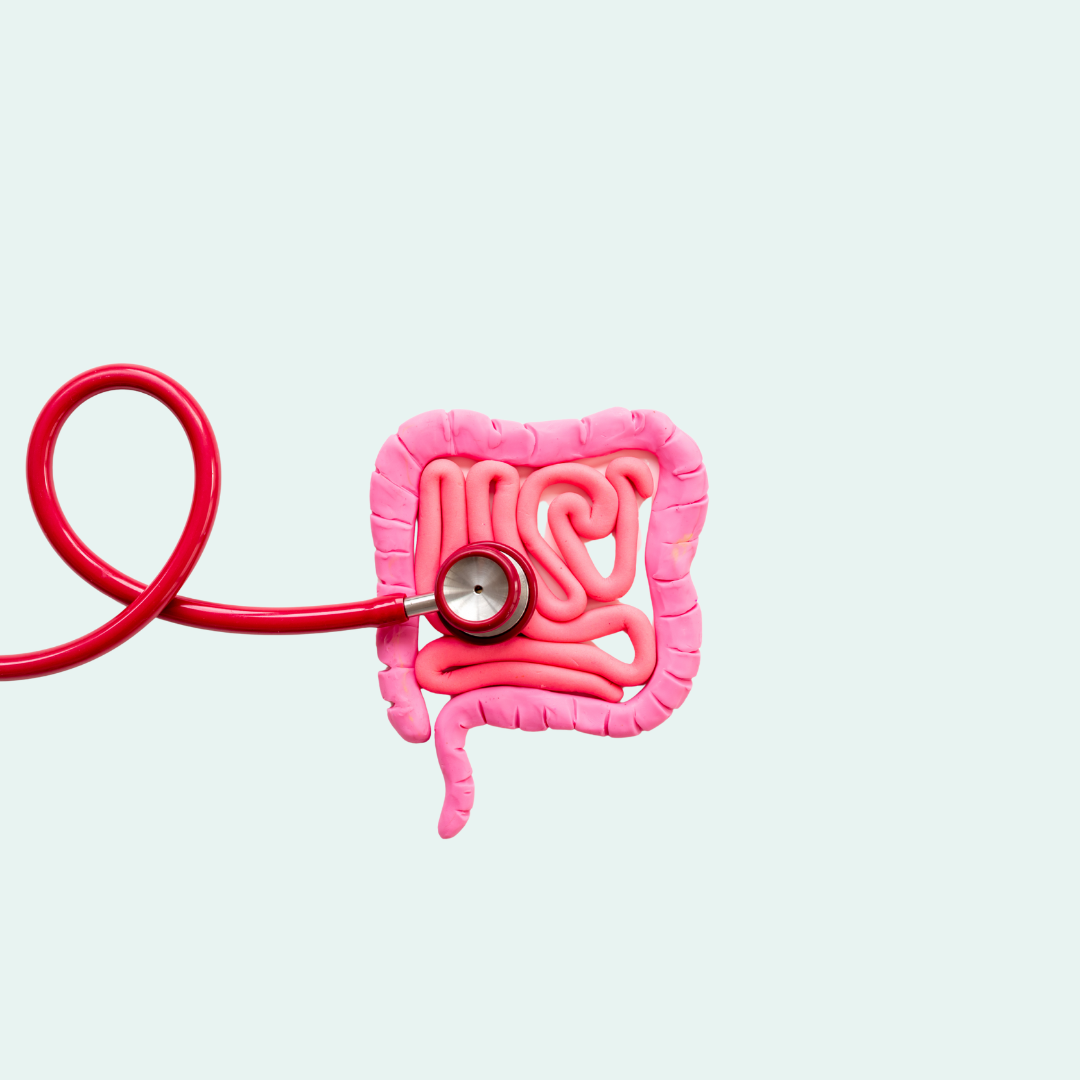
Who wants to hit “redo” on 2020 and just start over?! Me too!
As your friendly neighborhood Registered Dietitian, you’ve heard me mention my experience with autoimmune disease as well as inflammation. In this article, I dive into the details of my symptoms, how I navigate the holidays, and give some details on fad cleanses/diets you may be enticed to try + the science behind it all.
My Journey with Hashimotos
Although I’ve learned a lot over the years about what my body will and will not tolerate, I do tend to eat a bit more dairy (Manchego cheese is my fave!) and sugar (all types!) over the holidays than usual. I have learned that my Hashimoto’s will flare big-time if I go overboard with alcohol, soy, corn, or wheat, so I don’t really feel too tempted to go crazy with those.
However, I have a bit more latitude with sugar, dairy, and caffeine in terms of tolerance, so I indulge a little over the holidays. If I follow my own advice and moderate my indulgence, I’m just a little puffy for a day. But if I get carried away or have too many leftovers at my house, too much dairy and sugar will make me feel bloated and super brain-foggy. And the caffeine doesn’t help-hello headaches, afternoon energy crashes, and restless sleep.
The Science behind the trendy ‘cleanses’
Depending on how well I listen to my body, usually by January 2nd, I’m ready to hit the reset button. Now subjectively, I don’t do well with severe calorie restriction, so a “diet” has never worked for me.
You may have heard of some of these popular ‘cleanses’; let's jump in and break them down.
- Juice Cleanse - Listen, I LOVE cold pressed juice, & within reason Juice is a great addition to any lifestyle. But, in terms of a strict Juice Cleanse, objectively, the body needs nutrients in order to repair itself. Contrary to popular media messaging, the body needs protein, fat, and fiber to operate optimally. A juice cleanse (which is all carbohydrates with no protein or fat) does not actually support full detoxification because the liver also needs amino acids from protein to break down and remove toxins entirely.
- Keto - The gut needs a variety of food—especially plants—to fortify and strengthen the gut from irritation caused by sugar and alcohol. So, a keto diet right after the holidays might instead aggravate a deeper gut issue.
- RESTRICTING - Similarly, restricting calories too much (perhaps in the form of eliminating food groups) for too long can slow down the metabolism, which inhibits weight maintenance (or loss if that’s your goal) as well as the body’s ability to detoxify. Small amounts of toxins from various sources then build up and slowly but surely contribute to inflammation, which is expressed in many ways—fatigue, bloating, constipation, skin breakouts, weight gain, joint pain, brain fog, etc! Essentially any “symptom” is a sign of inflammation. The body can no longer contain the inflammation, and it begins to spill out in the form of a symptom.
To explain inflammation, I like to use an analogy of a bucket. We all carry around a bucket of inflammation, which is fine. The body can handle a “bucket’s” worth of inflammation. But eventually, if diet and stress remain out of control for too long, the bucket spills over, and we start to feel signs of imbalance. Moreover, some of us inherited smaller buckets (hello genes that influence our nutrition and vice versa—like a light switch), so the amount of inflammation that we can hold is less than average. Therefore, some people (like me) are more sensitive to imbalance. It has been a journey, but I have worked hard to develop body awareness that respects what works for me and supports optimal health. It also allows for some occasional indulgences and an overall mindset of peace and joy around food!
Is a “Reset” or “Detox” for me?
So, whatever your goals this coming year (besides no more surprise viruses!), remember that a “reset” of some sort can be a great idea—as long as it’s balanced and makes sense in how it supports the body’s detoxification and elimination functions. While extreme diets may offer a short-term solution, they usually do not catapult anyone into optimal health long-term.
Tip for determining the best ‘reset’ for you
Know your health details - are certain things triggers for inflammation for you? Do you have a history of leaky gut, restrictive mentalities? Knowing your health details will help you pick the best ‘reset’ to help you reach your goals.
The Metabolic Reset Challenge
If you've realized you, too, are seeing some signs of the post-holiday inflammation and don't know what to do now, I've got you covered! Sandy and I have created the Metabolic Reset Challenge to help you get back on track to feeling your best for 2021.
The Metabolic Reset Challenge is a four-week detox designed to help reduce inflammation symptoms that we talked about earlier! This challenge helps you to reboot detoxification systems (such as the liver or the kidneys), jumpstart your metabolism, and improve your natural energy levels, all while learning lifelong healthy eating habits.
Some Potential Benefits
- Reduced inflammation
- Increased energy
- Improved digestion
- Weight loss
What You’ll Get When Joining the Challenge
- Digital meal plan
- Recipes
- NutriClear® Plus Metabolic Cleanse Kit to support digestion and detoxification
- (2) MetabolicBiome Plus 7-Day Kits to recharge metabolism and replenish gut health
- 4 group Zoom meeting calls with presentations
- Q&A sessions and Dietitian guidance
- Exclusive discount on supplements and future 1-on-1 sessions
Want more great ideas to boost your health? Check out this month’s social media (@carolinafunctionalnutrition) for more on how to achieve your 2021 health goals and where to begin safely and effectively.
Recent Blog Posts
Share this post!
About the Author
Rhya Pachin is a licensed dietitian nutritionist who employs an "integrative" approach to support overall health rather than addressing just one symptom. As a certified LEAP therapist, she designs and supervises custom elimination diets. Her focus areas include gastrointestinal conditions like IBS and IBD, autoimmune diseases such as rheumatoid arthritis and Hashimoto's, persistent weight issues, food sensitivities, and chronic inflammatory conditions in both adults and children.





